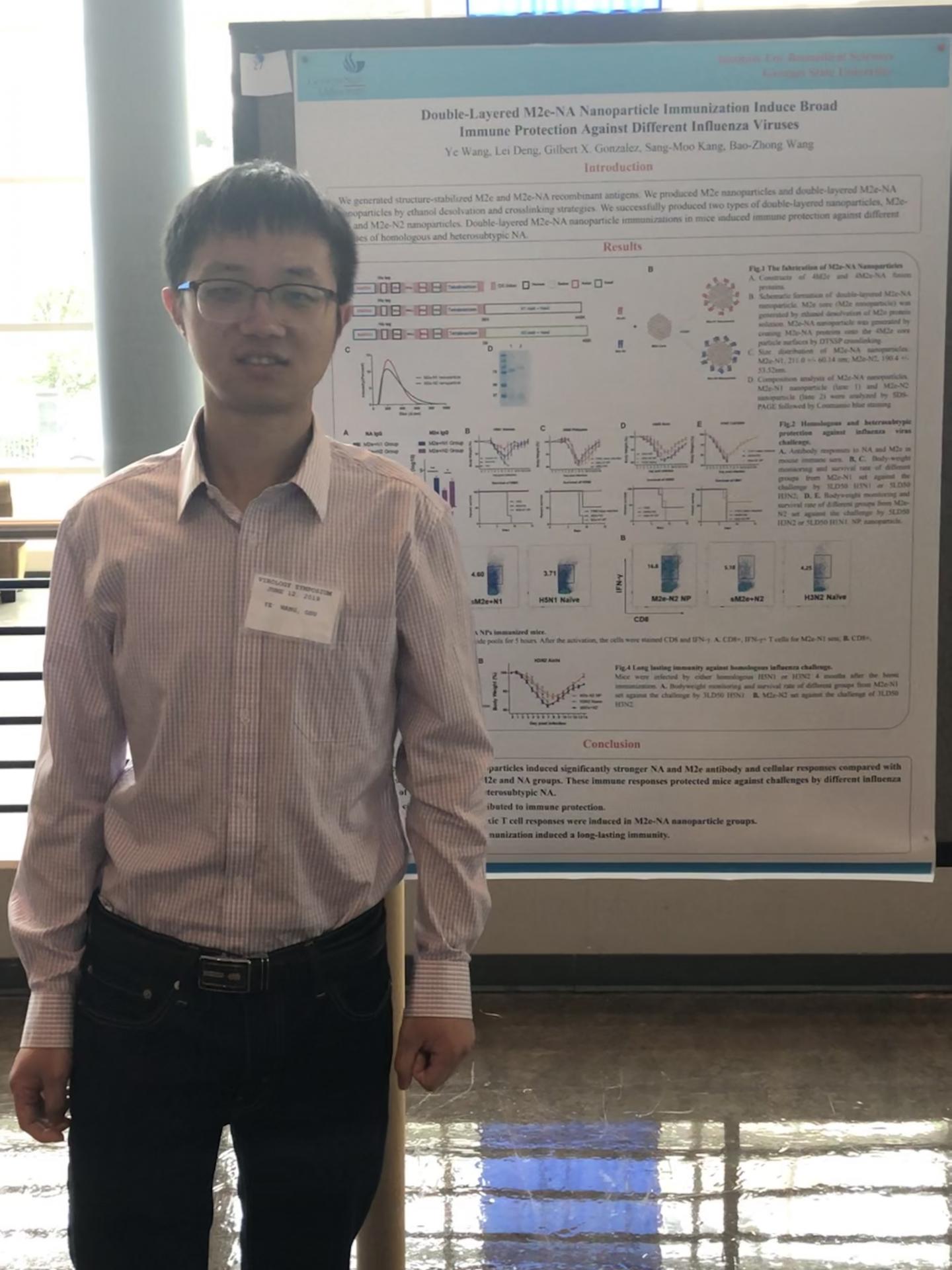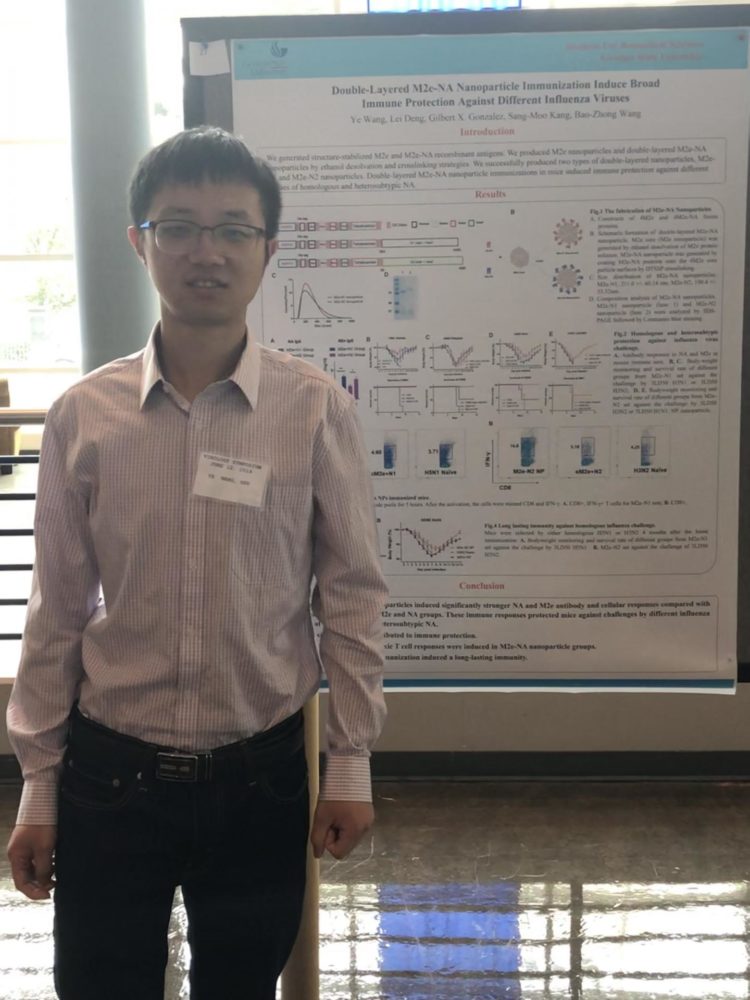
Credit: Georgia State University
ATLANTA–A novel nanoparticle vaccine that combines two major influenza proteins is effective in providing broad, long-lasting protection against influenza virus in mice, showing promise as a universal flu vaccine, according to a study by the Institute for Biomedical Sciences at Georgia State University.
The double-layered nanoparticle vaccine contains the influenza virus proteins matrix protein 2 ectodomain (M2e) and neuraminidase (NA). Mice were immunized with the nanoparticle vaccine before being exposed to influenza virus, and they were protected against six different strains of the virus.
The findings, which suggest this unique vaccine combination has potential as a universal influenza vaccine or component of such vaccines, are published in the journal Advanced Healthcare Materials.
“This nanoparticle antigen combination conferred mice with strong cross protection,” said Ye Wang, first author of the study and a biology Ph.D. student working in Dr. Bao-Zhong Wang’s lab in the Institute for Biomedical Sciences. “It can protect mice from different strains of influenza virus. Each season, we have different flu strains that affect us. By using this approach, we hope this nanoparticle vaccine can protect humans from different strains of influenza virus.”
Influenza, a contagious respiratory illness caused by influenza viruses, is a leading cause of death by infection. Seasonal flu vaccines are insufficient to prevent influenza outbreaks, and developing a universal influenza vaccine is the ideal strategy for eliminating public health threats of influenza epidemics and pandemics. A universal influenza vaccine would eliminate the need for vaccinations each season and offers universal protection against all influenza strains.
The influenza virus protein M2e is found in all influenza virus strains, with each strain having a very similar version, and the protein has mutated very slowly over time. The protein NA is found on the surface of influenza virus and has also mutated much slower than other influenza proteins. This double-layered nanoparticle vaccine uses M2e as its core, and NA is coated on the surface.
In the study, mice were exposed to one of six influenza virus strains after receiving the nanoparticle vaccine by intramuscular injection. The vaccine proved to have long-lasting immune protection, which was unchanged against viral challenges up to four months after immunizations.
“It’s important to mention that a lot of flu vaccines haven’t focused on NA before,” said Gilbert Gonzalez, co-author of the study and lab manager in Dr. Bao-Zhong Wang’s lab in the Institute for Biomedical Sciences. “NA is becoming a more important antigen for influenza vaccine research. Previously, it had been ignored or discounted because hemagglutinin (HA) is much more dominant. When you get a flu infection, your body reacts to the HA.”
However, the HA protein mutates very quickly, which is why seasonal flu vaccines must be changed by scientists every year. Someone could get the flu this year and develop immunity against that particular HA protein, but by next flu season, the HA protein would have rapidly changed and they wouldn’t be protected again.
Next, the researchers plan to load this double-layered nanoparticle vaccine onto microneedle patches for skin vaccination.
###
Co-authors of the study include Lei Deng, Latika Luthra, Chunhong Dong, Yao Ma, Jun Zou, Dr. Sang-Moo Kang and Dr. Bao-Zhong Wang (corresponding author) of the Institute for Biomedical Sciences.
The study is funded by the National Institutes of Health’s National Institute of Allergy and Infectious Diseases.
To read the study, visit https:/
Media Contact
LaTina Emerson
[email protected]
404-413-1353
Original Source
https:/





